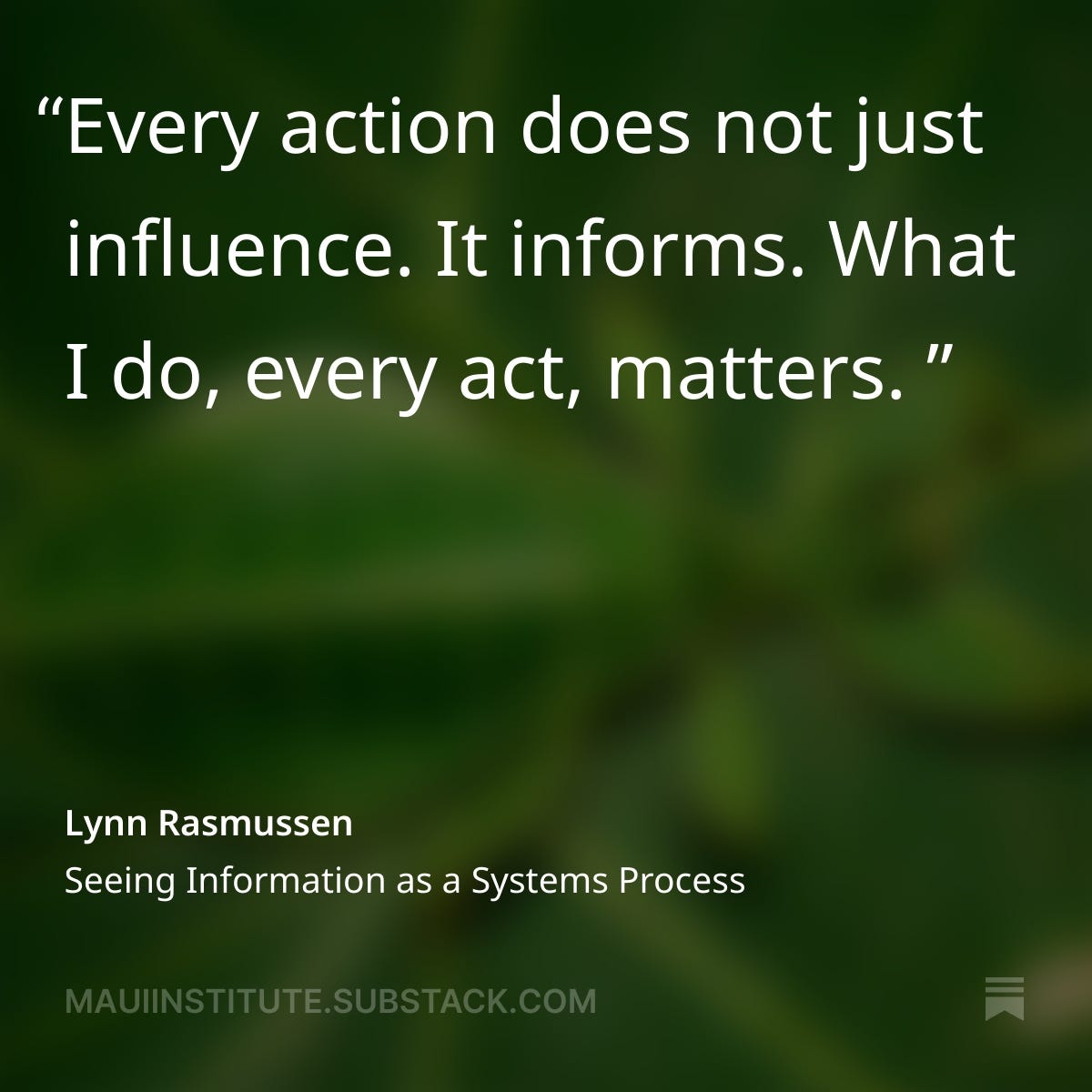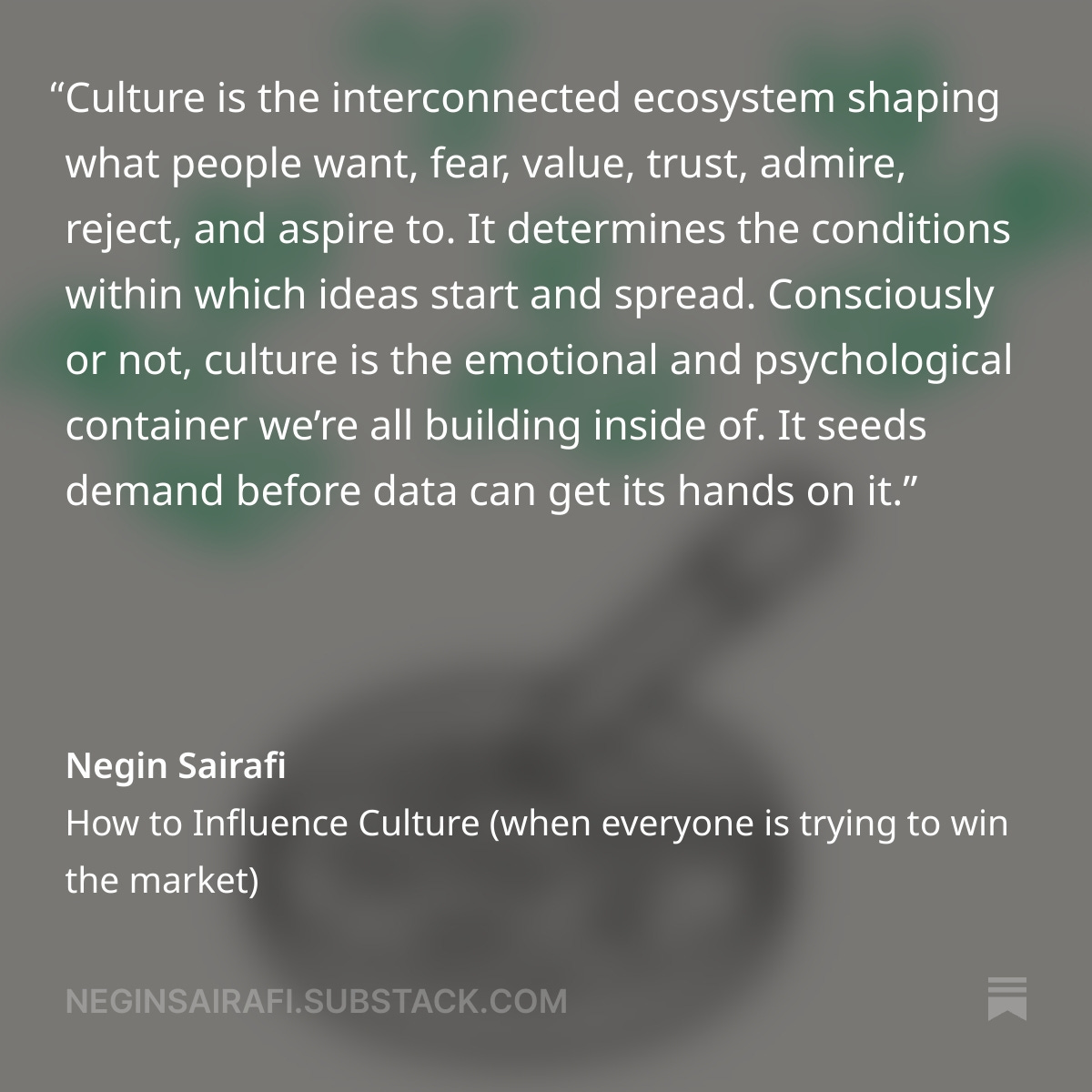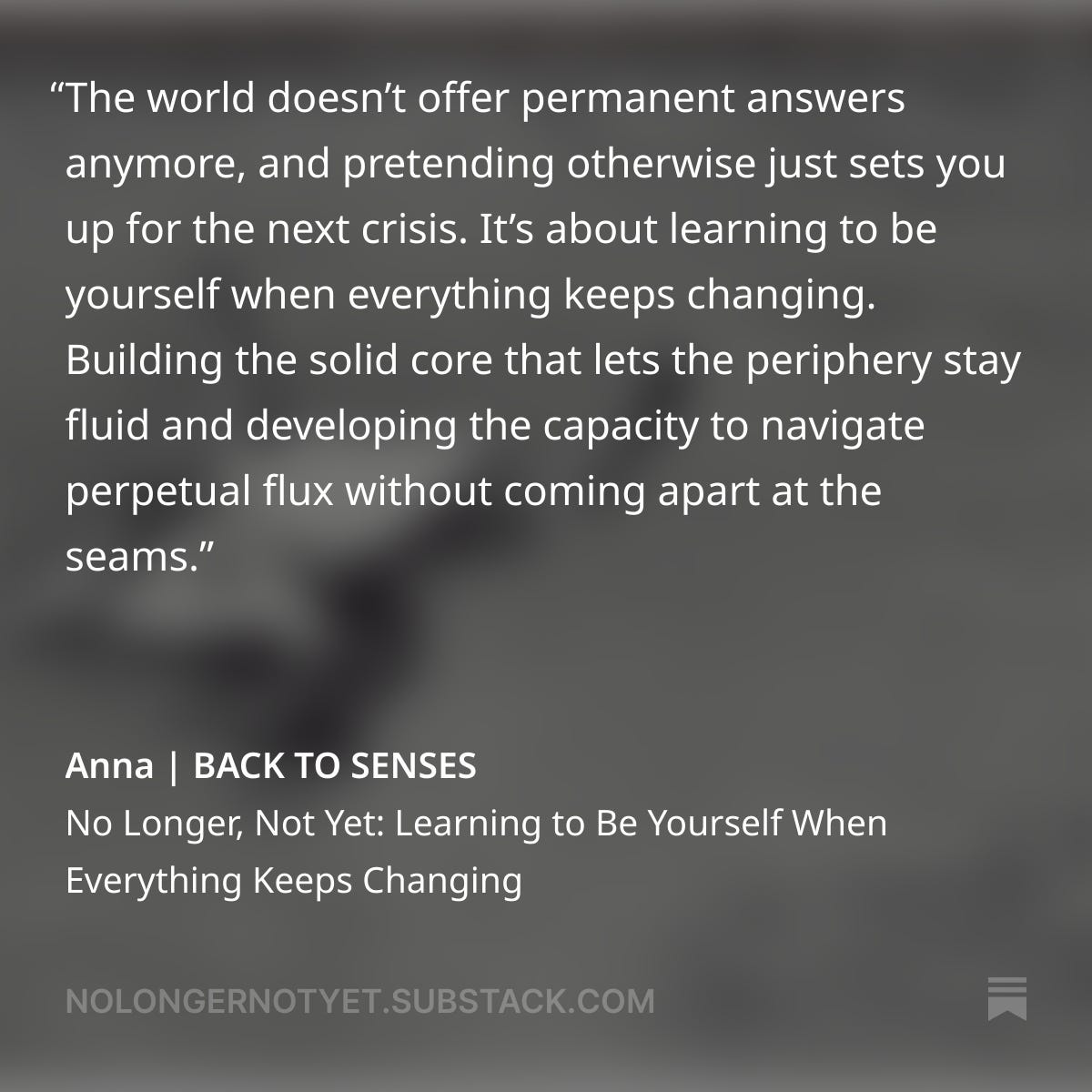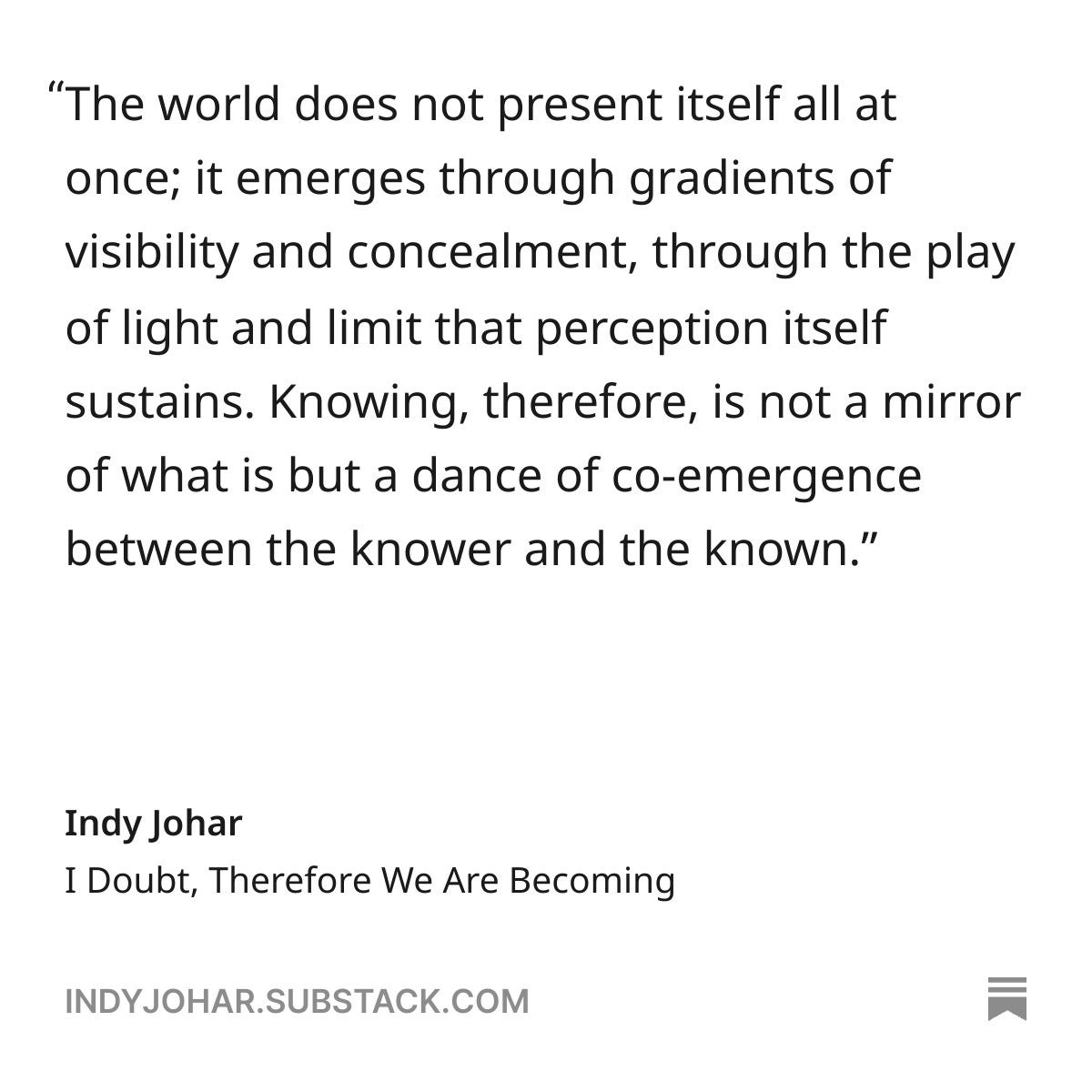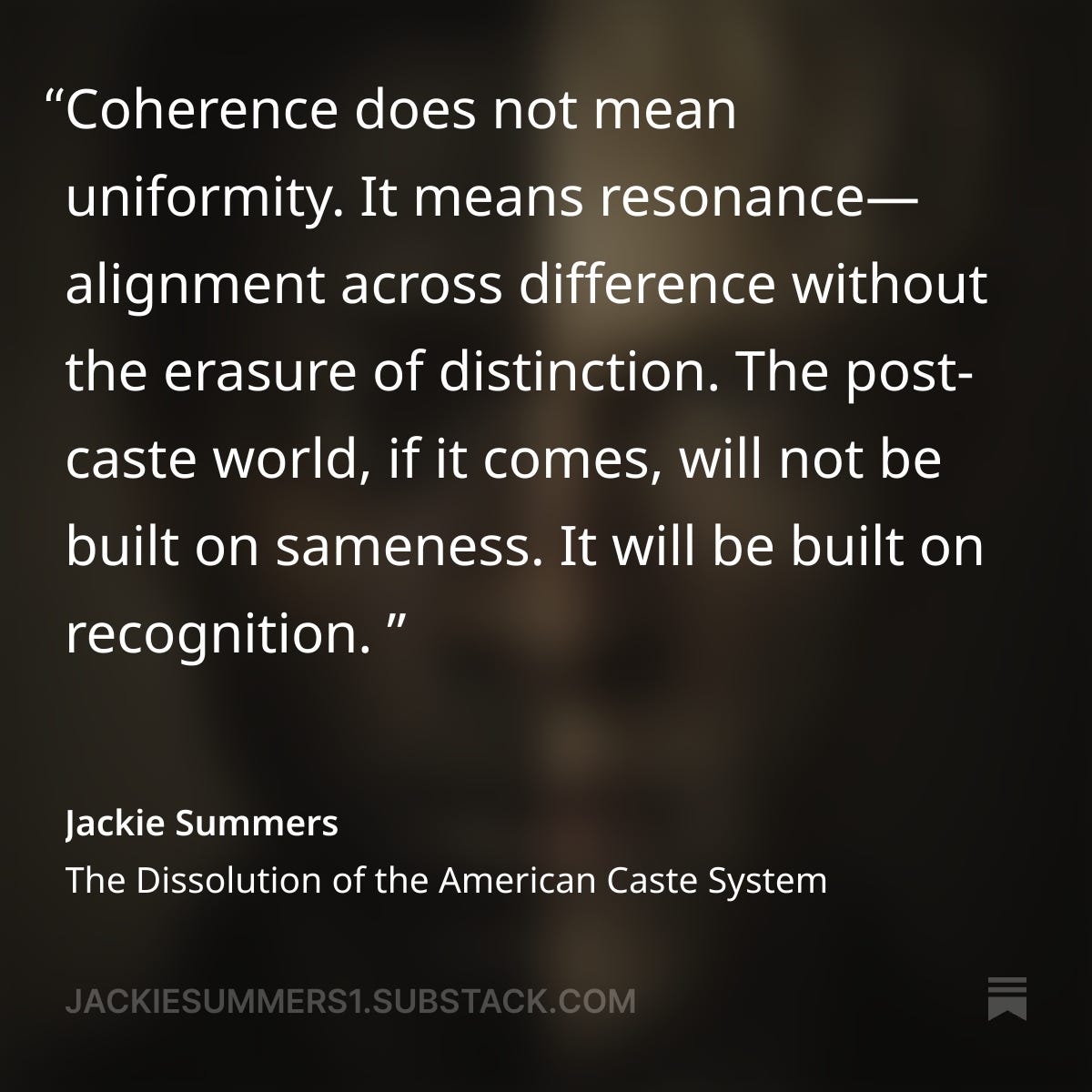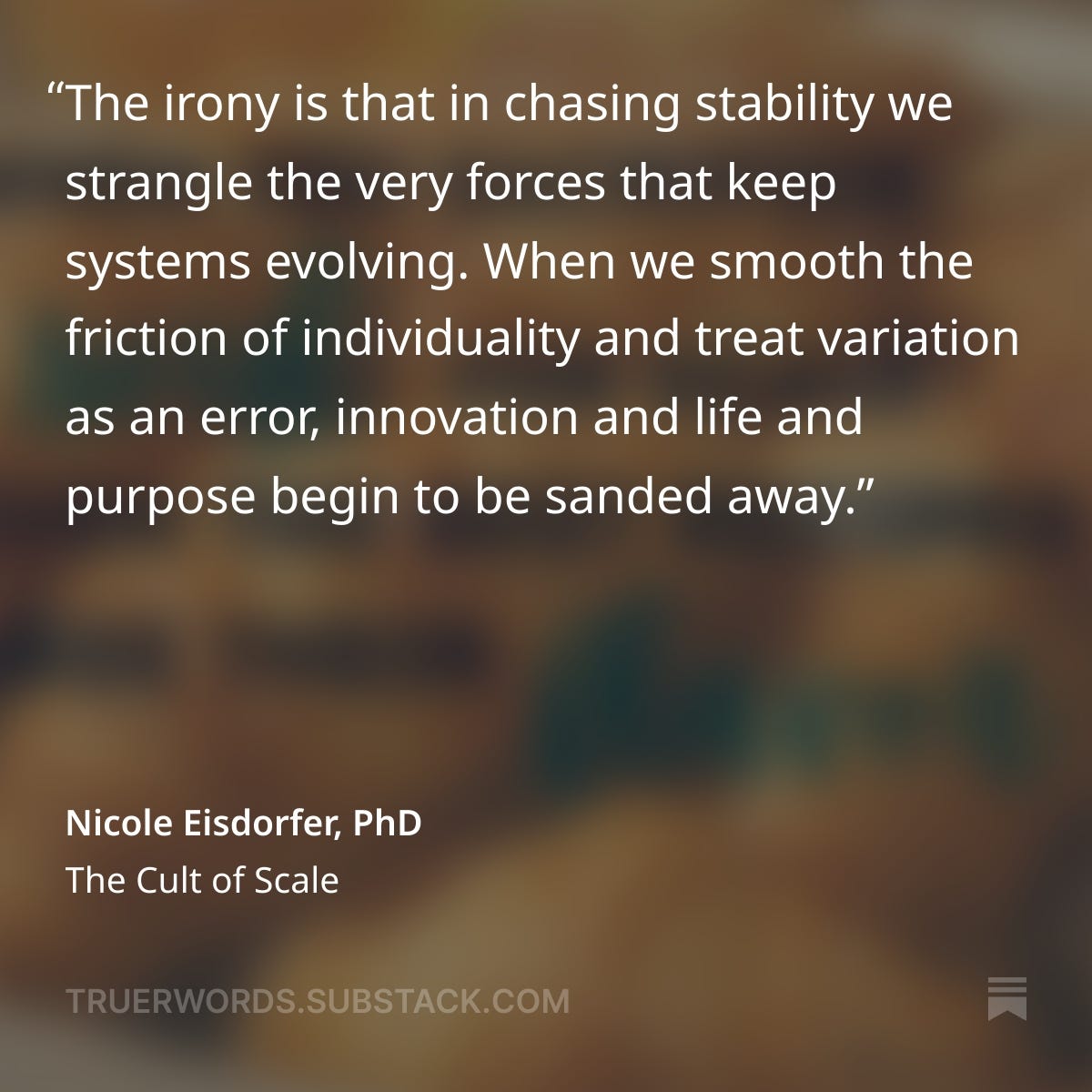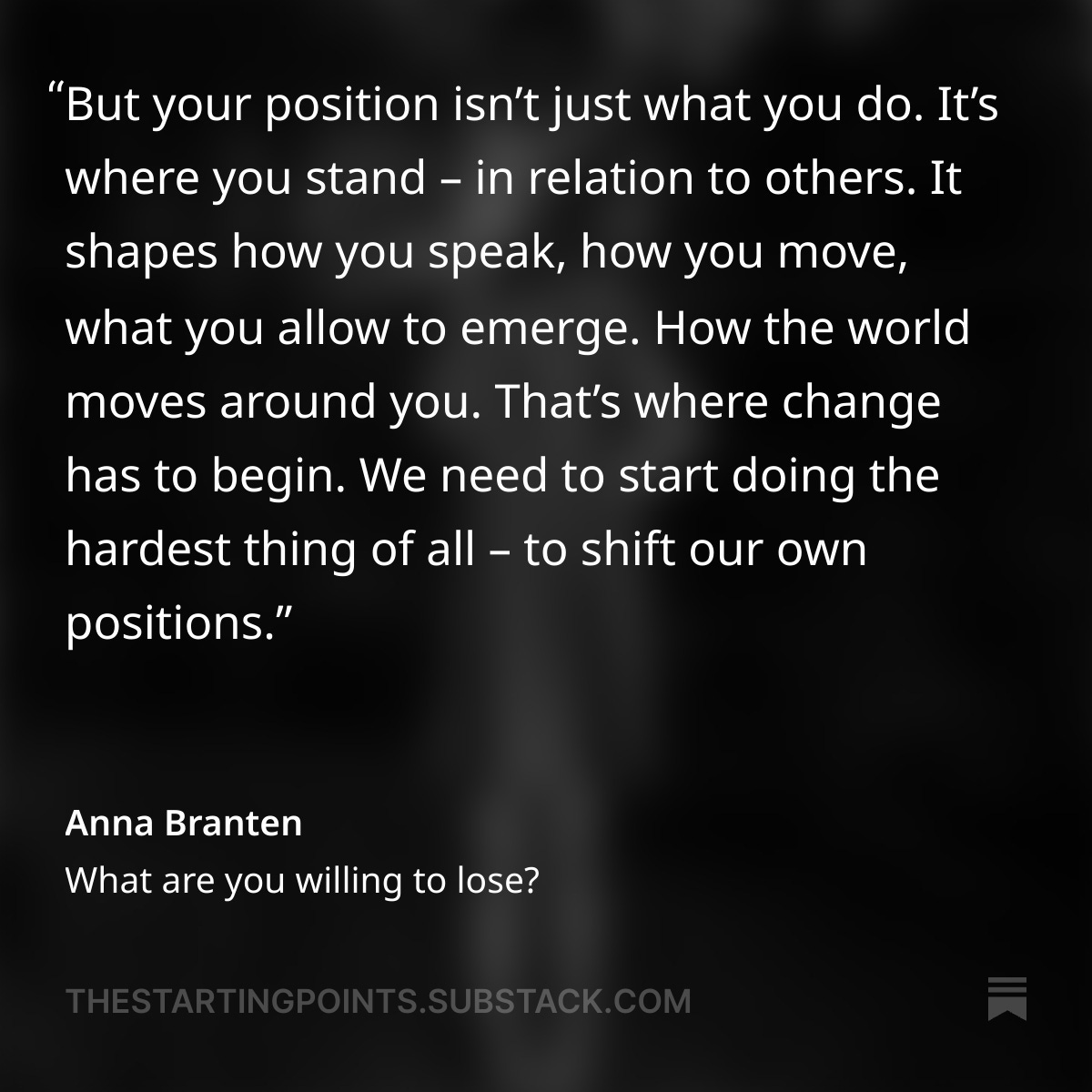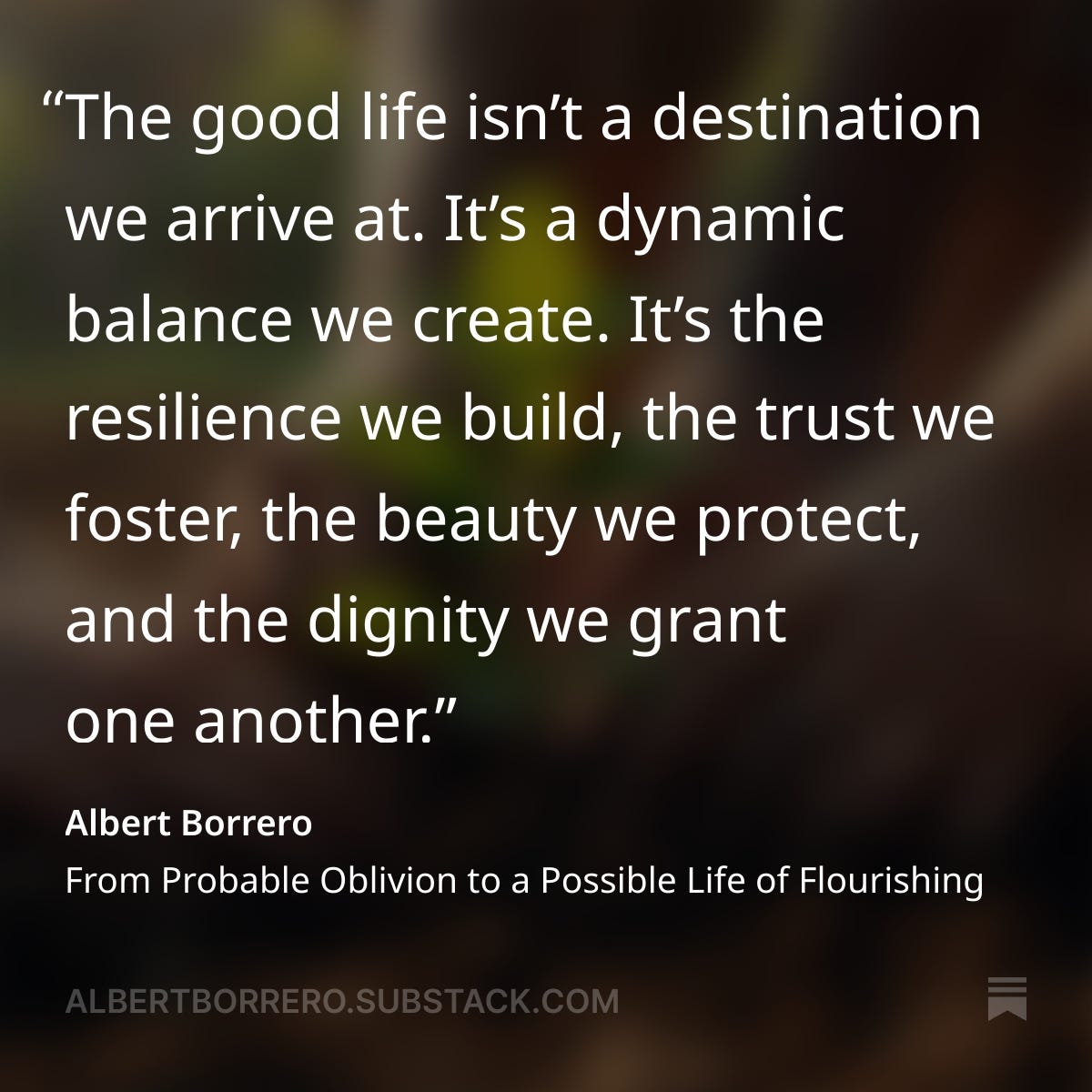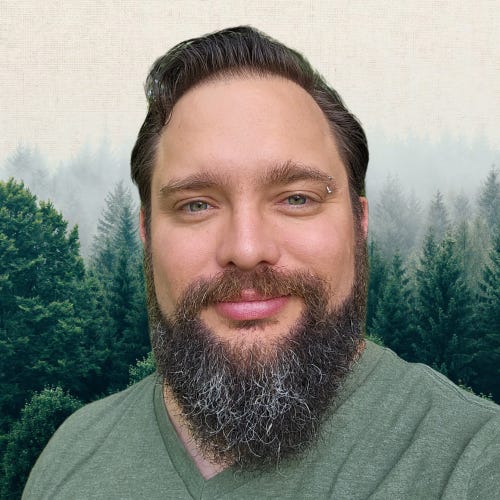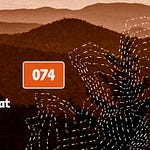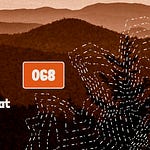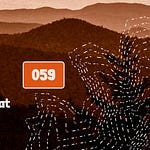Hello Everyone,
On this first Friday here in Appalachia, the world around me feels real, and in a way I haven’t experienced in many years. The last time I remember it being this chilly, this level of autumnal bluster, the kind that makes you want to drink hot beverages with friends and relax around a fire, was nearly 15 years ago.
And while the world outside of my little holler seems chaotic, within, it just seems … to exist. To be. Coyote howl at night while the squirrels scurry in the day, both looking for food as winter approaches. Leaves fall, and wind scatters their poems around the mountains.
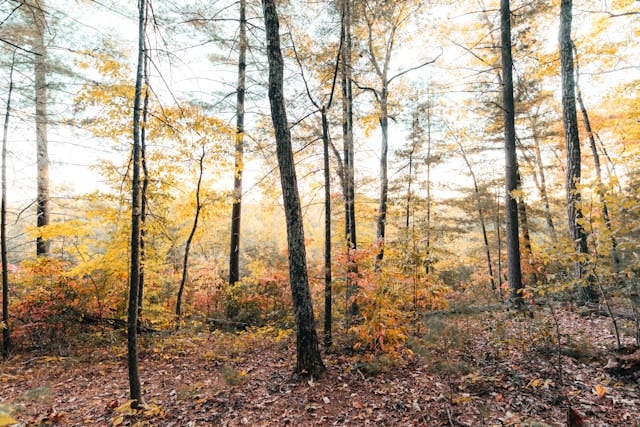
Maybe it’s the much smaller concentration of humanity amidst the abundance of life within the holler , or perhaps it’s the same circumstances just reminding me of how intertwined humanity and nature are. The relation between them is dyadic rather than binary, meaning that we are in relation to rather than opposition to the world around us.
It’s a relevant point to our societal fractures right now, a gift that the seasonal dance of the earth upon it’s axis hasn’t shown me before in a way I understood.
I’m seeing a shift in the online spaces I inhabit, where people are realizing that many individuals in leadership positions, whether as individuals or as manifestations of systemic architectures, view themselves in opposition to others rather than in relation with others.
Opposition to competition.
To humanitarian and ecological responsibility.
To anything that doesn’t affirm their own ego
This singular way of perceiving what a leader is supposed to do is being challenged by people collectively realizing how enclosed and isolated they have become from one another.
Realizing that despite all the successes and accolades they may have racked up, the performativity of achievement rots us from the inside out absent a place that provides meaning, a community that provides belonging.
And as I see these ripples emanating from the rocks falling from the crumbling manor house, I’m at the most hopeful point I’ve been all year. Not because I think “things will be fine,” or “ we “will get back to the way things were.”

Quite the opposite. I think, I hope, that finally enough people are remembering what is important, and how much work needs to be done. Community, empathy, belonging, empowerment. They are all worth the price of individual and collective struggle.
I asked in my piece “Creativity is the New Commons.” “What could be more sacred than what makes us human?” and it was referencing our critical thinking, imagination skills. But those are only fostered when we engage reciprocally with our people and places. Accumulation is just extraction, and over-accumulation strips away the soil that fertilizes new growth.
For a while now, I’ve called myself a Leadership Guide, because I didn’t like the connotation of “coach,” and didn’t accurately feel as though it reflected my ways of collaborating with people. I still feel as though I approach client work in a guiding manner, but the past few months of deep work and exploration have made me realize that what I in fact practice as a discipline, is leadership ecology.
Now, that field isn’t anything new; I’m not the first one to use the natural sciences to better understand organizational dynamics. However, I haven’t come across anyone using the specific lens of animism to engage with leadership in the way that I do.
So, I think it’s fair to say I am at a point now, standing in my values and honoring those who have had an impact on me, where I am reclaiming leadership as a relational and reciprocal practice between living entities in a field of connected systems that have been made to feel inert.
What we now call “leadership” in Western contexts has been cultivated in enclosed frameworks:
where only management of humans matter, and the right humans at that.
where labor defines worth, and only through narrowing yourself can you succeed.
where performative individuality is prized over respectful interdependence.
When land enclosure happened, we did not just lose land, forests, and water. The digital enclosure in process risks us losing knowledge, perspective, and truth at the expense of the natural resources already privatized.
We’ve lost shared meaning-making, kinship, and relational literacy (thank you, Grace, for helping me understand how the word literacy applies to more than reading).
These were once stewarded in collective trust, and held in Commons. Their enclosure bred the ongoing poly-crisis that ultimately is simply one layered “crisis of leadership.”
My writing going forward will reflect an vision to cut down and burn the roots of these enclosures, these mental hedgerows, and show how animism-as-a-lens allows us to engage with organizations and systems as living beings.
Now, if the concept and application of animism to leadership is unclear or muddy, if I need to define anything, I’m hoping you’ll let me know. That said, I have faith in your capacity to learn.
But as a conceptual primer, if something is anthropomorphized in any way, if it influences our actions in any way, we are thinking about it with animistic sensibilities:
If Culture breeds toxicity, that’s a creature with a behavior and drive to procreate.
If Nationalism “pulls” people in, that’s an entity with charisma and promises.
If the power grid is being drained, it’s a being that is overly extracted from.
Animism does not require mystical belief in gods or fairies, but rather relational imagination in order to understand connection.
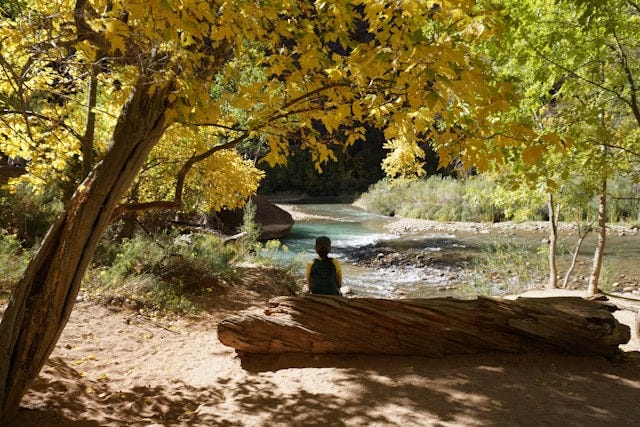
For quite some time I’ve been hesitant to directly use animism and the appropriate language for it in corporate or governance settings because of its association with the “other” of pre-Christian and Indigenous knowledge systems, fearing that that the conceptual application would be ridiculed.
So, I sanitized it, used it as metaphors, all to try and work within the system to change the perception of how leadership and leadership development should be viewed.
The problem, as I’ve come to realize, is that when you package a relational epistemology (how we know what we know) in familiar business language (strategy, systems thinking, KPIs), some people will integrate the language without altering the ontology (what is real), the same exhaustive cycles continue.
Leaders will say things like:
“Ah, culture is a living organism, yeah great metaphor.”
“For sure, we need to empower our teams holistically.”
“Authenticity is co-created, absolutely agree.”
But nothing changes in their logic and conception of leadership.
They will use new words to continue the same toxic behaviors:
assign worth based on outputs,
center leaders as visionaries over listeners,
flatten relationships into a resource to be exploited,
Strip meaning from language to avoid moral commitment.
That’s essentially knowledge laundering, and a continuation of extractive appropriation; that’s not something I want to promote.
I can’t do it alone, I need your help in filling in knowledge gaps, keeping my perspective open to the Commons, and staying in right relation to our human ecosystem.
I hope to neither gate keep nor dilute the potential for an animistic lens to help us shift our conceptions of leadership to ones that will enable us to navigate the future.
One where everyone and everything has what they need to thrive, to exercise agency, and to support one another.
So, here are my questions for you to mull over this week:
What if leadership is less about self-definition, and more about relational dispersal?
I’ve said that authenticity is relational, but think about it’s impact on the opposite end of the linkage from you. If you empower someone to be their best self, does that not offer the opportunity for them to do the same to others? Dandelions aren’t always in yellow bloom, there is a point in their growth cycles where they release 2,000 - 15,000 seeds. Our actions as Dandelion Leaders can have impact far beyond what we are capable of knowing or envisioning.
Where does agency go when no one’s watching? Who feeds it? Who starves it?
Think about this from an organizational perspective. What prompts people to do the right thing when no one is looking? If a worker or a leader doesn’t have an audience, what do they choose do? What actions, environments, and mentalities foster ethical action, and mutual accountability?
I’ll have some big news for you on Monday, but until then,
Keep Cultivating Yourself.
Chris
P.S. This is your last reminder to watch 2021 film The Green Knight before I put out a bunch of writing that will most definitely have spoilers.
Seed Catalog:
I got a chance to read a lot of Substack posts this week, so I have quite a few quotes to share with you. It’s been a gift to continue to find new, like minded people, and read resonant words from those I’ve already connected with.
I’m also excited to share that I was the first guess on Jon Levesque’s Don’t Save It, Do It Podcast. You can check it out here:
From Lynn Rasmussen’s article “Seeing Information as a Systems Process.”
From Negin Sairafi’s piece “How to Influence Culture (when everyone is trying to win the market)”
From Anna | BACK TO SENSES’s thoughts in “No Longer, Not Yet: Learning to Be Yourself When Everything Keeps Changing”
From Indy Johar’s article “I Doubt, Therefore We Are Becoming”
From Jackie Summers insightful analysis “The Dissolution of the American Caste System”
From my friend Nicole Eisdorfer, PhD’s examination of croissants and kudzu in “"The Cult of Scale."
From Anna Branten’s article “What Are You Willing to Lose?”
I found this in Albert Borrero’s thoughts in “From Probable Oblivion to Possible Life of Flourishing.”
Lastly, a good reminder from Meredith Forder in her piece “The Real Reason You’re Not Happy.”
Welcome, and thank you for your presence!
I am a leadership ecologist rooted in Appalachia, raised through environmental respect, military service and Western educational institutions. I use an animistic lens to better understand the relationship between individuals, organizations, and systems.
When working with leaders and organizations, my approach not one of doctrine, but of guidance and tending to: to memory, to culture, to systems and people. I believe leadership is not a fixed role, but a living, relational practice.
My work draws from my lived experience and research into myth-making, insurgency and business strategies, regenerative philosophies, creative works, the landscape I inhabit, and the mundane, because the ember of humanity is often nurtured in and between those spaces.
If something resonates, leave a comment, or reach out to chat - I always love hearing people’s stories.
You are always welcome to book a free call to either get fresh perspective or see if we’d work well together in cultivating your capacity to lead.
I offer a variety of services, 1:1 coaching, group programs, leadership training development, and culture consultation.



